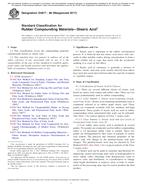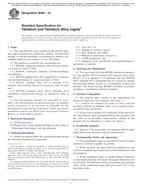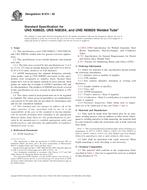1.1 These test methods cover a number of recognized methods for determining the nonmetallic inclusion content of wrought steel. Macroscopical methods include macroetch, fracture, step-down, and magnetic particle tests. Microscopical methods include five generally accepted systems of examination. In these microscopical methods, inclusions are assigned to a category based on similarities in morphology, and not necessarily on their chemical identity. Metallographic techniques that allow simple differentiation between morphologically similar inclusions are briefly discussed. While the methods are primarily intended for rating inclusions, constituents such as carbides, nitrides, carbonitrides, borides, and intermetallic phases may be rated using some of the microscopical methods. In some cases, alloys other than steels may be rated using one or more of these methods; the methods will be described in terms of their use on steels.
1.2 These test methods are suitable for manual rating of inclusion content. Other ASTM standards cover automatic methods for obtaining JK ratings (Practice E 1122) and inclusion content using image analysis (Practice E 1245).
1.3 Depending on the type of steel and the properties required, either a macroscopical or a microscopical method for determining the inclusion content, or combinations of the two methods, may be found most satisfactory.
1.4 These test methods deal only with recommended test methods and nothing in them should be construed as defining or establishing limits of acceptability for any grade of steel.
1.5 This standard does not purport to address all of the safety concerns, if any, associated with its use. It is the responsibility of the user of this standard to establish appropriate safety and health practices and determine the applicability of regulatory limitations prior to use.
Product Details
- Published:
- 01/01/2002
- Number of Pages:
- 15
- File Size:
- 1 file , 260 KB


